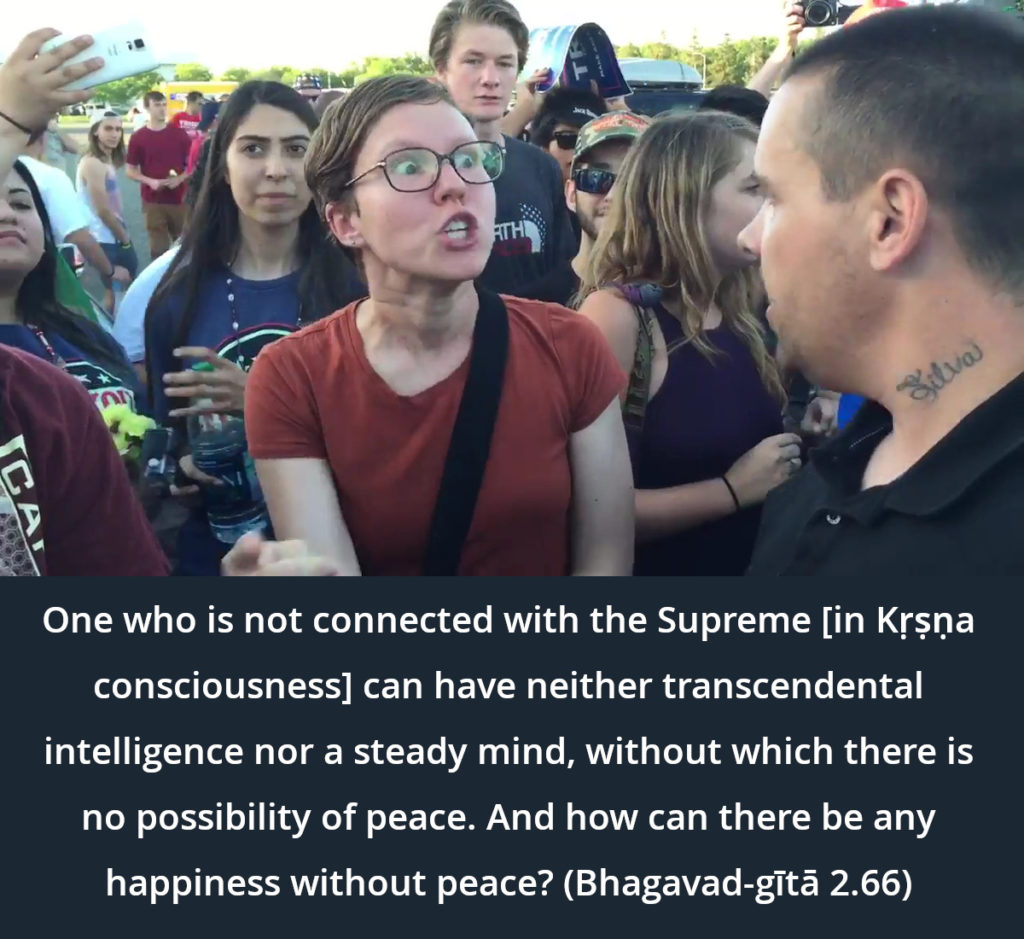नास्ति बुद्धिरयुक्तस्य न चायुक्तस्य भावना |
न चाभावयत: शान्तिरशान्तस्य कुत: सुखम् || 66||
nāsti buddhir-ayuktasya na chāyuktasya bhāvanā
na chābhāvayataḥ śhāntir aśhāntasya kutaḥ sukham
na—not; asti—is; buddhiḥ—intellect; ayuktasya—not united; na—not; cha—and; ayuktasya—not united; bhāvanā—contemplation; na—nor; cha—and; abhāvayataḥ—for those not united; śhāntiḥ—peace; aśhāntasya—of the unpeaceful; kutaḥ—where; sukham—happiness
Translation:
The man whose mind is not under his control has no Self-knowledge and no contemplation either. Without contemplation he can have no peace; and without peace, how can he have happiness?
Commentary:
Whence is happiness for the man without peace? Peace and happiness go together. Happiness is in the Self, and peace unlocks the flood gates of Atmananda. This peace is attained by constant meditation on the Self. And meditation is possible only when the mind is in a state of balance and harmony. So the first stage is harmony and balance of mind.
Such balance and harmony are the immediate results of the purified mind. It has already been pointed out that a mind free from attraction and repulsion comes to be harmonized in yoga. So without purity, there is frequent mental agitation which makes it impossible for man to meditate on Alma. Through purity, mental harmony is acquired, through harmony the power of meditation is acquired, and through meditation peace, and through peace, happiness. The negative form of the ideas and interrogation at the end proves that the Lord wants to emphasize these ideas for the guidance of the seeker. Peace is an important step for self-realisation.
